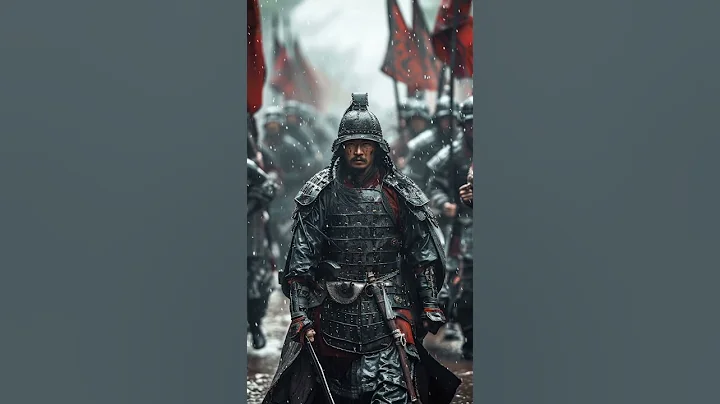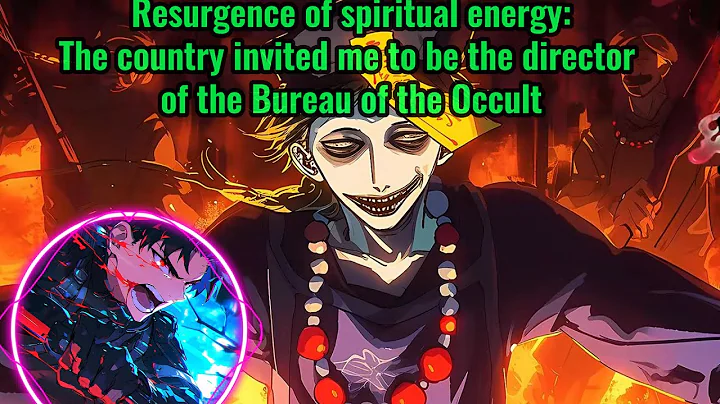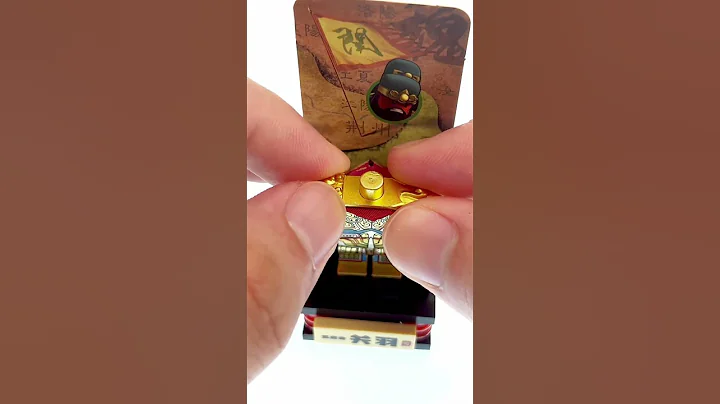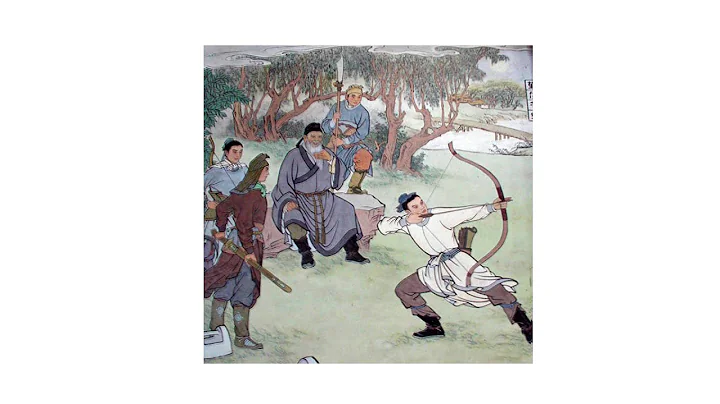The famous general Wen Yang of the late Three Kingdoms period stood out in this encounter in Lejia City.
Wen Yang was the son of Wen Qin. He was only eighteen years old, but his bravery and courage were rarely matched by others. According to the "Three Kingdoms·Guanqiu Jian Zhuan" annotation and "Wei's Spring and Autumn Annals", it is "the most courageous and powerful person"; according to the "Book of Jin·Jingdi Ji", it is "the bravest champion of the three armies".
History books call Wen Qin "unparalleled in courage and determination", but perhaps because of his old age, his performance in this battle was very poor; on the contrary, it was his son Wen Yang's amazing performance that made him worthy of the title of "unparalleled courage and strength". Such adjectives as "bravely championing the three armies".
At that time, when he saw the arrival of Sima Division's army, Wen Qin's reaction was "surprised and unknown", and he was dumbfounded. Wen Yang, a newborn calf who was not afraid of tigers, said to his father: "The enemy has just arrived and has not yet established a stable footing. If we take the initiative, we will surely defeat the enemy."
So Wen Yang made an agreement with his father that he would lead the elite vanguard to attack Sima at night. At the division's main camp, Wen Qin led the main force to advance early the next morning. Afterwards, Wen Yang divided his cavalry into two teams, and took advantage of the darkness to launch a surprise attack on the Sima Division camp from the east and west.
After Wen Yang led a team to break into the enemy camp, he rushed left and right, galloping horizontally. The imperial army was caught off guard and fell into chaos. Sima Division never expected that the rebels would come so quickly, and in his haste, he did not know how many enemy troops there were. The thunderous beating of drums and the sound of killing were heard outside the big tent, and Sima Shi was greatly frightened.
This surprise is no small matter. Because Master Sima's eye tumor had just been operated on, it could not withstand the torment of the saddle horse. Now he was frightened, anxious, and filled with blood and blood. The eyeball he had operated on unexpectedly popped out!
In order to stabilize the morale of the soldiers and prevent his troops from knowing his condition, Master Sima endured the severe pain and wrapped himself in a quilt, then bit the quilt with his mouth to prevent himself from making any sound. The result is that "the quilt is all bitten", that is, the quilt is bitten to pieces.
Although the imperial army camp was disturbed by Wen Yang all night, the two sides were greatly outnumbered after all. When it dawned the next day, the fact that Wen Yang's troops were weak was exposed to the imperial army. What also made Wen Yang feel helpless was that his father Wen Qin did not lead the main force to come for reinforcements as agreed. Wen Yang had no choice but to withdraw from the battlefield.
Knowing that the rebels took the initiative to retreat, Sima Shi realized that last night was a false alarm and immediately ordered the generals to pursue them with all their strength. But the generals were a little suspicious and said, "Wen Qin and his son are brave and good at fighting. They were not defeated by our army last night. Why did they retreat on their own?" The implication was that they were worried that Wen Qin and his son would cheat.
Sima Shi said anxiously: "One vigorous effort, then another, and three times it is exhausted. Wen Yang has been tossing all night, and now he finds that no one has come to respond. What is he waiting for if he doesn't run away?!" The imperial army then sent troops to pursue him.
After Wen Yang led his troops to join Wen Qin, he found that his father was eager to retreat eastward and did not arrange for anyone to stop him, so he took the initiative to ask for help again, saying: "If the enemy's momentum is not destroyed, we will not be able to escape."
Later, Wen Yang led only more than ten elite cavalrymen around him, turned around and killed them, and then rushed straight into the imperial army's formation. After chasing the troops, they retreated calmly and walked away. When Sima Shi heard the news, he couldn't help being furious, and immediately ordered his left commander Shi Sima Ban to lead 8,000 brave cavalry to pursue again.
Next, a scene that amazed and even unbelievable the readers of later generations appeared - this time, Wen Yang did not even bring the dozen or so cavalry just now, but single-handedly faced the eight thousand heroic cavalry of Sima Ban! According to common sense, no matter how brave Wen Yang is, he is still a body of flesh and blood, not made of iron. A spit from each of these eight thousand knights is enough to drown him. But what was shocking was that after Wen Yang single-handedly charged into these eight thousand knights, he actually killed and injured more than a hundred people in one go, then escaped unscathed, turned around and ran away.
If you think that Wen Yang is so brave that he can boast for a lifetime, so he can just run away, then you are wrong.
Wen Yang ran for a while, and after slowly recovering his strength, he actually turned around and killed him again.
Just like that, he killed once, ran once, killed again, and ran again, back and forth a full six or seven times. During this time, it was as if he was in a deserted place, and he was possessed by a divine weapon. In comparison, Sima Ban's eight thousand knights seemed to have turned into scarecrows and wooden men. They could only let him gallop back and forth, chopping melons and vegetables. In the end, they did not dare to step forward and could only watch him go away. ...
When "The Romance of the Three Kingdoms" was describing the battle of Changbanpo, it once described Zhao Yun's "seven in and seven out" in Cao Jun's tiger and leopard cavalry, which was passed down as a good story by later generations. However, it must be pointed out that although it is true that Zhao Yun singled out the Tiger and Leopard Cavalry, the saying "seven in and seven out" is not recorded in the history books and can only be regarded as the exaggerated words of Mr. Luo Guanzhong . Wen Yang's many battles in this battle are recorded in black and white in "Zizhi Tongjian Wei Jiba":
"Yang used a horse to enter thousands of riders, killing and wounding more than a hundred people." , then it came out, for those who are like this, no one dares to chase him. "
Because he was amazed by Wen Yang's invincibility, later generations of readers gave him a very glorious title - "Little Zhao Yun". If the records in " Zizhi Tongjian " are true, Wen Yang is actually better than Zhao Yun.
After Wen Qin and his son retreated, the rebel army was in full decline, and the imperial army was basically sure of victory. However, not everyone in the Sima Division wanted him to win. Just as there were people who opposed him among the court officials and local generals, there were also such people among the generals of the Forbidden Army.
For example, the Lieutenant Colonel Yin Damu has been a domestic slave of the Cao family since he was a child, and is deeply trusted by Cao Shuang. During the Gaoping Ling Incident, Sima Yi ordered Yin Damu to persuade Cao Shuang to surrender, and promised to protect Cao Shuang's wealth. Unexpectedly, Sima Yi then broke his promise and destroyed Cao Shuang's clan. Yin Damu was naturally angry. Later, he ostensibly took refuge with Sima Shi, but secretly he always wanted to avenge Cao Shuang.
This time around the Huainan rebellion, Yin Damu felt that an opportunity had come, and secretly hoped that Sima Division would be defeated. But the development of the situation was contrary to his expectations. In order to help the rebels reverse their defeat, Yin Damu decided to personally deliver a piece of top-secret information to Wen Qin in order to rekindle his fighting spirit. This top-secret information is the matter of Master Sima's worsening condition "at a glance". In other words, Yin Damu judged that Sima Shi probably wouldn't live long. As long as the rebels were informed of this and persisted for a while, the situation would be favorable to the rebels once Sima Shi died.
However, how to send out the information without arousing Sima Shi's suspicion? Yin Damu thought of the trick of "persuading surrender", so he volunteered and said to Master Sima: "Wen Qin was originally the confidant of Duke Ming, but he was just bewitched by Guanqiu Jian. He is also a fellow countryman of the emperor, and he has always had a good relationship with me. I asked Ming Gong to persuade him to surrender, so that he could change his mind and restore old friendship with Ming Gong. "
Master Sima felt that it would be best to persuade him to surrender, so he sent Yin Damu. Yin Damu immediately put on his armor, rode on a fast horse, and caught up with Wen Qin alone. But Wen Qin was very wary of him and wouldn't let him get close. Yin Damu could only convey the message through shouting. But there were many people around Wen Qin, and Yin Damu did not dare to shout out the information publicly. After much deliberation, he finally had to shout: "Why can't you bear it and wait a few more days?"
These words are very important to Wen Qin. People who know about Master Sima's illness can easily understand it, but the problem is that Wen Qin doesn't know about it at all, so this statement is completely inexplicable to him. Because he didn't understand, Wen Qin could only subconsciously interpret these words as words of persuasion to surrender, and then swore angrily: "You are a family member of the late emperor (referring to the Cao family). You don't want to repay your kindness, but instead you conspire with Master Sima." , Regardless of justice and conscience, God will definitely not spare you!" As he spoke, he drew his bow and arrow, preparing to shoot Yin Damu.
Yin Damu was helpless and was so anxious that tears fell down. He lamented: "The situation is over, please take care of yourself!" Then he turned his horse's head and walked away in despair.
Yin Damu was obviously not suitable for intelligence work. Even though he was in front of Wen Qin, he still didn't pass on the information. As a result, Wen Qin and his son could only continue to flee south. Wang Ji, the forward general of the imperial army, took advantage of the victory and advanced to Xiang County.
Guanqiu Jian learned that the front line was defeated and found that the imperial army had tightened the encirclement, so he had to flee overnight, and his subordinates were dispersed. When Wen Qin and his son returned to Xiang County, the place was already an empty city. They knew that they would never be able to defend the city with their own army; they wanted to return to Shouchun, but they learned that their old nest had been occupied by Zhuge Dan. Seeing that there was no way to go to heaven and no way to enter the earth, Wen Qin and his son had no choice but to defect to Soochow.
On the 19th day of the first leap month, Sun Jun led the Wu army to Lugao (now northwest of Chaohu City, Anhui); Wen Qin and his son fled here in panic and surrendered to Sun Jun.
Guanqiu Jian fled all the way to the southeast, probably intending to surrender to Wu, but there were fewer and fewer tribesmen around him. When he reached Shen County (now northwest of Yingshang County, Anhui Province), even the soldiers on his left and right All the attendants had left him. Guanqiu Jian was short of horses and men, so he had to hide in the grass beside the Huaihe River.
On the 21st of the same month, a civilian named Zhang discovered Guan Qiujian at Anfeng Ferry (now the Nanhuai River Ferry in Yingshang County), so he shot him dead, cut off his head and sent him to Luoyang. Later he was granted the title of Marquis by the imperial court.
In the Cao Wei Empire at that time, Guanqiu Jian could be regarded as one of the few famous generals with both civil and military skills and outstanding military exploits. He was proficient in poetry and prose, and was a famous poet during the Wei and Jin Dynasties. He became an official in the "Literature Bureau" of Cao Rui vassal residence, and later joined the army and guarded the border for many years. He served successively as general of Liao Dynasty, captain of Wuhuan, and governor of Youzhou . job. In the second year of Jingchu, Sima Yi pacified Liaodong, and Guanqiu Jian was granted the title of Marquis of Anyi for his meritorious cooperation in the battle. The greatest military achievement of Guanqiu Jian's life was his two eastern expeditions to Goguryeo during the first year of the Han Dynasty, sweeping across the Korean peninsula, and not only regaining the "four Han counties" (Lelang, Xuantu, Zhenfan) , Lintun), and expanded the territory thousands of miles away, shocking all the barbarians, and expanded the actual ruling territory of the Central Plains Dynasty in the Northeast to an unprecedented scale.
However, such a veteran with great success in the battlefield made a careless move in his later years and lost everything. In the end, he died tragically at the hands of a common man. His end was really sad.

Before the rebellion broke out, Shouchun originally had a population of more than 100,000. However, when Zhuge Dan settled in Shouchun, all the people in the city, young and old, either fled into the mountains or surrendered to Soochow.
Subsequently, the imperial court promoted Zhuge Dan to the rank of General Zhendong (later moved to General Zhendong), Yitong Sansi, and Commander Yangzhou All military affairs, which was equivalent to handing over the defense of the eastern front of the Cao Wei Empire to his hands. .
No one would have expected that just two years later, Zhuge Dan, who was entrusted with the important task, would follow in the footsteps of Wang Ling and Guanqiu Jian and brazenly launch the third rebellion in the Huainan area...
After learning that Zhuge Dan had settled in Shouchun, Sun Jun knew that there was nothing to gain, so he immediately led his troops back. After returning to the court, he appointed Wen Qin as the Protector and General of Zhenbei, and also led Youzhou Mu (empty title).
After the "Second Huainan Rebellion" was put down, the imperial court annihilated Guan Qiujian's three tribes, implicated more than 700 people in Luoyang's court and the public, and threw them all into prison. Normally, these people would probably die. Fortunately, the presiding judge of the case, Shi Duyou, was compassionate and only killed the dozen or so people leading the case, and then petitioned the court to exempt most of them from the death penalty.

Although Sima Shi successfully put down the rebellion of Guanqiu Jian and Wen Qin and retained his position as a powerful minister, his life also came to an end.
He led the army back north, and when he reached Xuchang, he was on his deathbed. Sima Zhao, who was in Luoyang, heard the news and immediately rushed to Xuchang. Sima Shi then ordered Sima Zhao to command all the armies.
On the 28th of the first leap month of this year, Sima Shi died of illness in Xuchang at the age of 48.
With the fall of the domineering ministers, the Cao Wei Empire came to a very delicate crossroads. According to Sima Shi's last wish, of course he hoped that Sima Zhao would continue to control the power of Cao Wei; but the young emperor Cao Mao who had just succeeded to the throne, and the Queen Mother Guo behind him, as well as some ministers who still cared about Cao Wei, Obviously they don't want to see this result.
As a result, a political game involving the highest power began.
As soon as Sima Zhao took over the military power, the imperial court quickly sent an edict to Shangshu Fu Gu. On the grounds that "the southeast was newly settled" and needed to be pacified, Sima Zhao, who was then General Wei, was temporarily stationed in Xuchang. At the same time, Fu Gu was ordered to lead all the troops in the Eastern Expedition back to Luoyang.
Obviously, this was a ruthless move to divert the tiger away from the mountain and drain the bottom of the cauldron. The purpose was to exclude Sima Zhao from the court and prevent him from accessing the central power. At the same time, it also deprived Sima Zhao of the military power he had just given to him by the division.
In view of the high "technical content" of this edict, it is estimated that it was not written by the fifteen-year-old young emperor Cao Mao, but probably by the Queen Mother Guo and a group of ministers who cared about Cao Wei.
At this time, Sima Zhao was undoubtedly in a very embarrassing situation: if he obeyed the imperial edict, he would lose the position of powerful minister that his father Sima Yi and his elder brother Sima Shi had fought for many years. From now on, he could only guard one side as a general. This I am afraid that he will never have the chance to return to the court, let alone control the government; and if he does not obey the imperial edict, it is tantamount to openly resisting the imperial edict, and the court can use this as a reason to accuse him. Then his fate will be worse than obediently obeying the edict. Even more unbearable.
At the critical moment, someone stepped in to help him get out of this predicament, and then helped him retain his position as a powerful minister.
This person was Zhong Hui, who was the Minister of Internal Affairs at the time.
Zhong Hui has always been appreciated by Master Sima. In recent years, he has served as the Minister of Zhongshu. In fact, he is the core staff of Master Sima, and has been helping him "know secrets". Therefore, Zhong Hui and the Sima family already have a mutually beneficial and mutually beneficial relationship. If Sima Zhao is marginalized, Zhong Hui will definitely not be of any benefit to him; on the contrary, once he helps Sima Zhao take over the power of the government, then Sima Zhao will definitely If he can repay him and reuse him, Zhong Hui's future career will be limitless.
Because of this, Zhong Hui immediately conspired with Fu Gu, and the two quickly reached a consensus. Then, Fu Gu went to the court and perfunctory the court, while he and Sima Zhao led the army northward and rushed back to Luoyang.
By the time Young Emperor Cao Mao and the people behind him came to their senses, Sima Zhao had already led his army to the south bank of Luoshui, brazenly assuming a posture of attacking the capital.
On February 5 of the same year, the imperial court was forced to let Sima Zhao succeed him as the general and record the affairs of the minister. A new powerful minister was born, but he did not die in another family, but still had the surname "Sima".
In this quiet but significant political game, Zhong Hui's strong intervention declared Cao Mao's defeat and Sima Zhao's victory.
Zhong Hui influenced the political situation of Wei State with one move, and he couldn't help but feel a little complacent, "so he always seemed to be proud of himself." Fu Gu saw it and warned him privately: "Although your ambition is lofty, the scope is not broad enough. It is not easy to achieve great achievements in the world. How can you not be cautious?"
Regarding Fu Gu's admonition, this time is right. Zhong Hui, who prided himself on his talent and pride, obviously couldn't listen.
It is precisely because Zhong Hui is really talented that he will achieve the unparalleled success of conquering the Shu Han in the future; but it is precisely because he is too conceited that he fell into failure the moment he reached the peak of his life. The abyss...





















